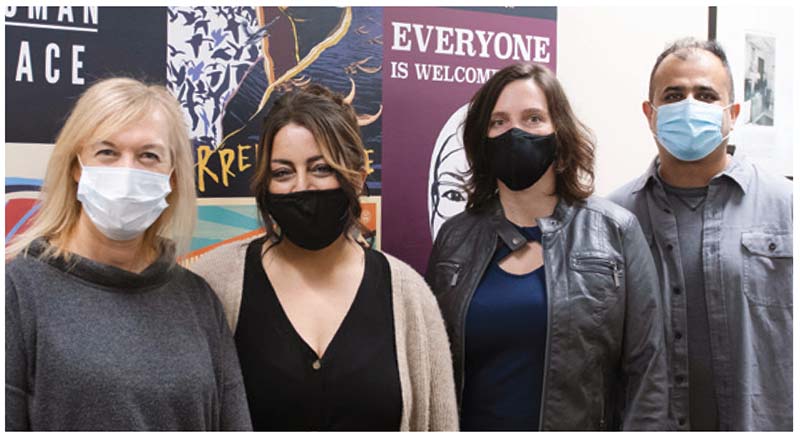Increasing Access Through Partnership With the Refugee Women’s Alliance
An immigrant from Colombia who dreams of gaining the qualifications to help close the gap between great job opportunities and roles that barely allow her to pay her monthly bills. An experienced facilities manager who moved to the U.S. from Lebanon to build a better life for his family but needs credentials to secure a similar job here. Motivated adults striving for a University of Washington education to move forward in their careers — if only they could afford it.
UW Continuum College believes everyone deserves education to thrive across their circumstances. This commitment to serve individuals in need is why Continuum College has joined forces with Refugee Women’s Alliance (ReWA) to help immigrants and refugees access UW Professional & Continuing Education certificate programs.
By helping students source funding through our partner ReWA we’re creating access to our programs.
— Jo Gubas, Associate Director of Community and Corporate Relations, Continuum College
THE PROBLEM
In many cases, refugees and immigrants who relocate to the U.S. have a professional background and university education. But they find they need a credential from the U.S. as well if they want a shot at anything above a low-wage job. Or even a job at all.
Thanks to a $2.5 million grant from the Day One Families Fund, ReWA is helping refugees on the verge of homelessness in King County by supporting long-term career plans. As a result, ReWA needs education options that are career focused, such as the certificate programs offered by UW Professional & Continuing Education. And they’re partnering with UW Continuum College to make these hopes a reality.
HOW THE TEAM HELPED
“In January 2021, we created a pilot test to see how we could collaborate,” says Jo Gubas, associate director of community and corporate relations at UW Continuum College. “We built these connections between our organizations to allow the career coaches at ReWA to pair up with our enrollment services team for an orientation as to how our different programs could help individuals receive an education from the University of Washington.”

UW Continuum College has also actively worked with ReWA to support three low-income immigrants who applied for admission in a UW Professional & Continuing Education certificate program as well as the UW Certificate Scholarship program. Since the UW Certificate Scholarship Fund can only support a portion of the scholarship requests UW Continuum College receives each year due to limited funds, ReWA stepped in to offer help to individuals who didn’t receive UW Certificate scholarships.
“We’ve created simple systems to connect individuals with ReWA where their circumstances look like they might align with what the ReWA Day One program is all about,” Gubas says. “The issue is that our non-credit certificate programs don’t currently qualify for federal or state financial aid, so by helping students source funding through our partner ReWA we’re creating access to these programs.”
For people who worked professional jobs in their home countries, having a way to return to their career is empowering.
— Fereshte Taherazer, ReWA Day One Coordinator
THE OUTCOME
Since UW Continuum College launched our partnership with ReWA this year, we’ve been able to serve as an education provider for four adults who are currently receiving Day One Families Fund support from ReWA to take UW Professional & Continuing Education certificates.
“One of the real benefits for an immigrant who doesn’t have an established career here is that our programs jettison them into a community of industry professionals who are also in the field that students are interested in,” notes Gubas. “Which can really help with introductions to future employers or just really learning about the work culture in the U.S.,” she says.
“For people who worked professional jobs in their home countries, having a way to return to their career is empowering,” adds Fereshte Taherazer, ReWA Day One coordinator.
However, this is only the beginning of the life-changing work this partnership will be able to support. “ReWA serves more than 55 people per year with their Day One program, so we’re only really getting started in terms of working together,” says Gubas.
